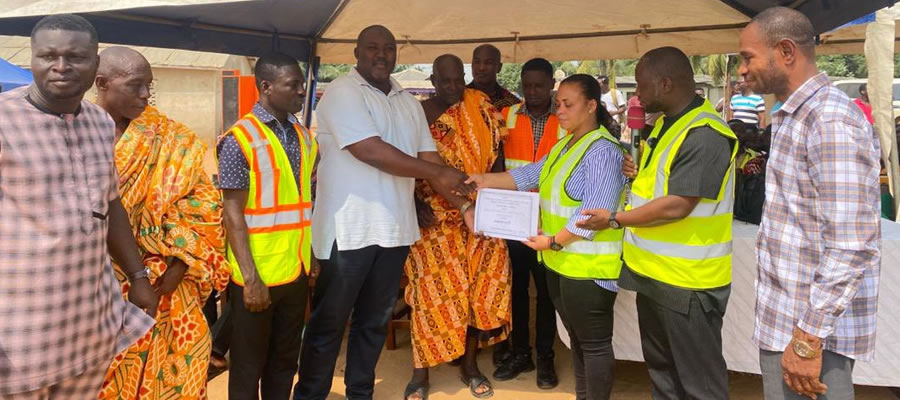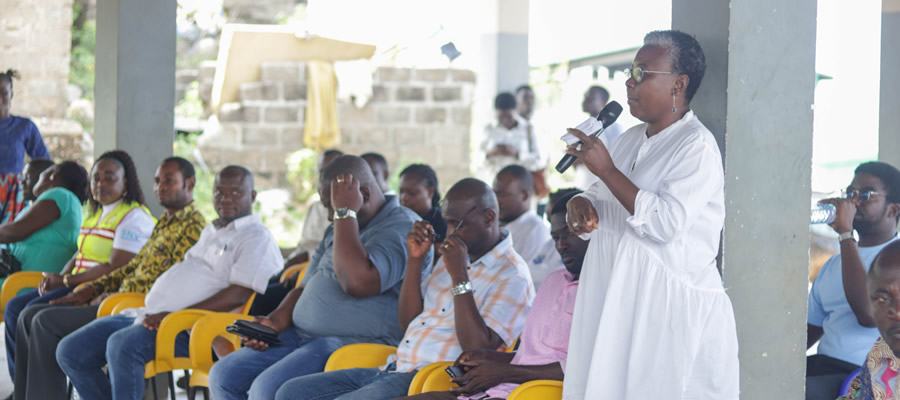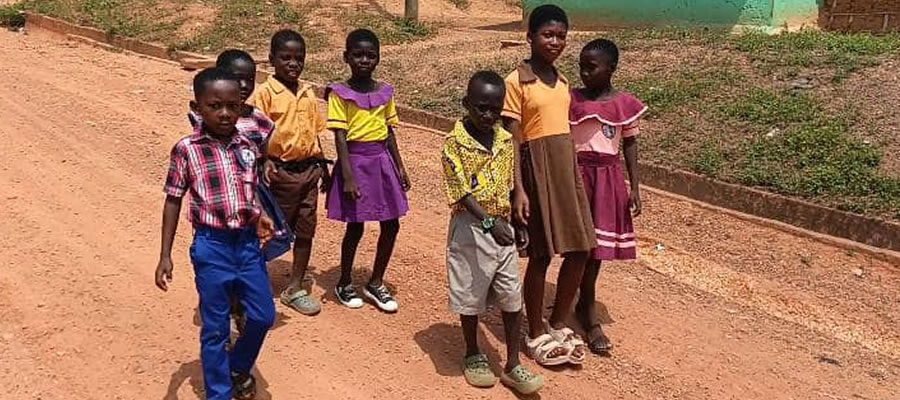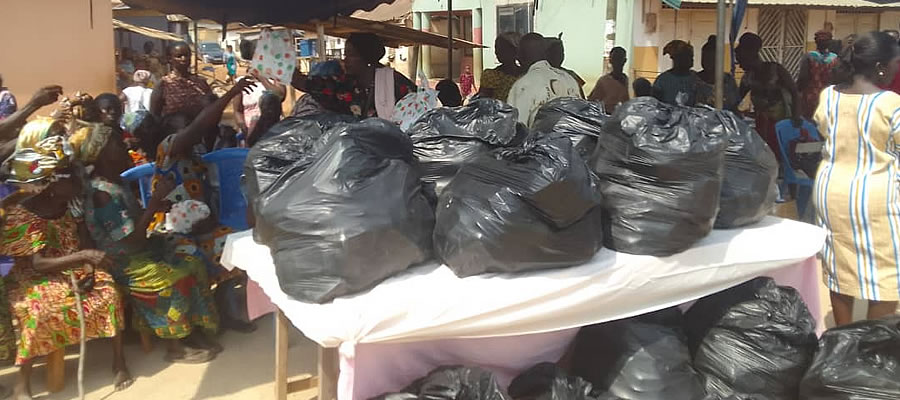

The main sources of drinking in the district are boreholes, hand-dug wells, streams and ponds. The water and sanitation situation have improved significantly and this has resulted in reduction in the number of water borne or water related diseases in the district. The percentage coverage of water in the district is 81% instead of 62% between 2002 - 2005.
At present, there are about 151 boreholes in 89 communities. There are also about 62 hand - dug wells fitted with pumps in 36 communities. With regards to unprotected wells, there are as many as 600 wells in the district. Households and public toilets are gradually increasing with the construction of more toilets in various communities and houses throughout the district. It is believed that about 45% of the populations at the moment have access to toilet facilities in the district instead of 33% from 2002 - 2005.
Communities such as Apowa, Beahu, Funkoe, New Amanful and Kejabil were formerly enjoying pipe-borne water due to the construction of the first class road from Takoradi - Agona Nkwanta the underground pipelines got damaged and they are yet to be repaired.
In the area of environmental sanitation, the Assembly has procured additional refuse tractor and many refuse containers as well as treated refuse sites to control indiscriminate dumping of refuse that are generated in the various communities. Generally, the health status of the people in the district has improved as a result of the provision of adequate water and sanitation facilities.
Per Capita Accessibility To Water And Sanitation Facilities
The district has a population of ninety-six thousand four hundred and fifty-three as given by a census conducted in 2005.
Waste Collection Point/Systems
Out of one hundred and twenty three (123) towns and villages within the district, only five (5) communities comprising Dixcove, Agona fie, Agona Nkwanta and Apowa have been provided with fourteen (14) skip containers. Crude dumping is carried out in all the one hundred and twenty three (123) towns and villages. There are a number of public toilets which are emptied when full by cesspool-emptier hired from the second battalion of infantry at Apremdo or from SAEMA.
Final Diposal Sites or Refuse
The district has only one final disposal site for refuse, a new site acquired at Kejabil is yet to be used. Land acquisition for final disposal of reuse is a problem. Several meetings held with chiefs of prospective areas ideal for the purpose have not yielded results.
Management Of Sanitation Systems
Apart from the final disposal site for refuse, the district has four incinerators, two each, situated at princess town and Akatekyi.
These are manned by labourers and supervised by out-stationed officers. Solid waste is managed solely by the district assembly. Liquid waste is managed by the assembly in partnership with private individuals
Organizatios Involved In Water And Sanitation
World vision international, Recerca e Cooperazione (RC), Hackfast and conservation foundation (CF) are NGOs assisting water and sanitation activities in the district. They are into the drilling of boreholes, construction of latrines, sinking of hand duh wells, tree planting, clean up campaigns and health education.
Date Created : 11/16/2017 6:41:25 AM









 facebook
facebook
 X
X
 Youtube
Youtube
 instagram
instagram
 +233 593 831 280
+233 593 831 280 0800 430 430
0800 430 430 GPS: GE-231-4383
GPS: GE-231-4383 info@ghanadistricts.com
info@ghanadistricts.com Box GP1044, Accra, Ghana
Box GP1044, Accra, Ghana